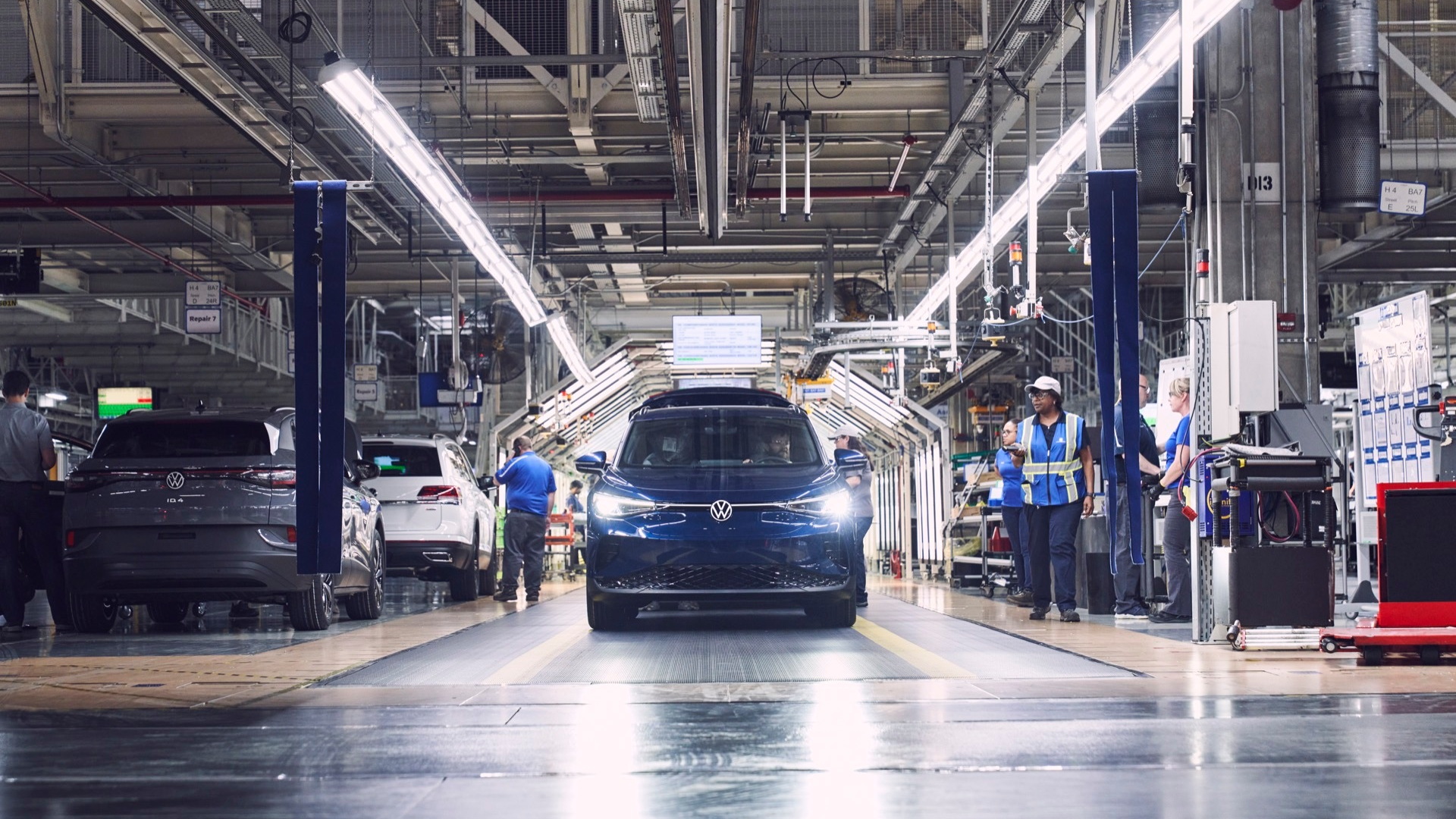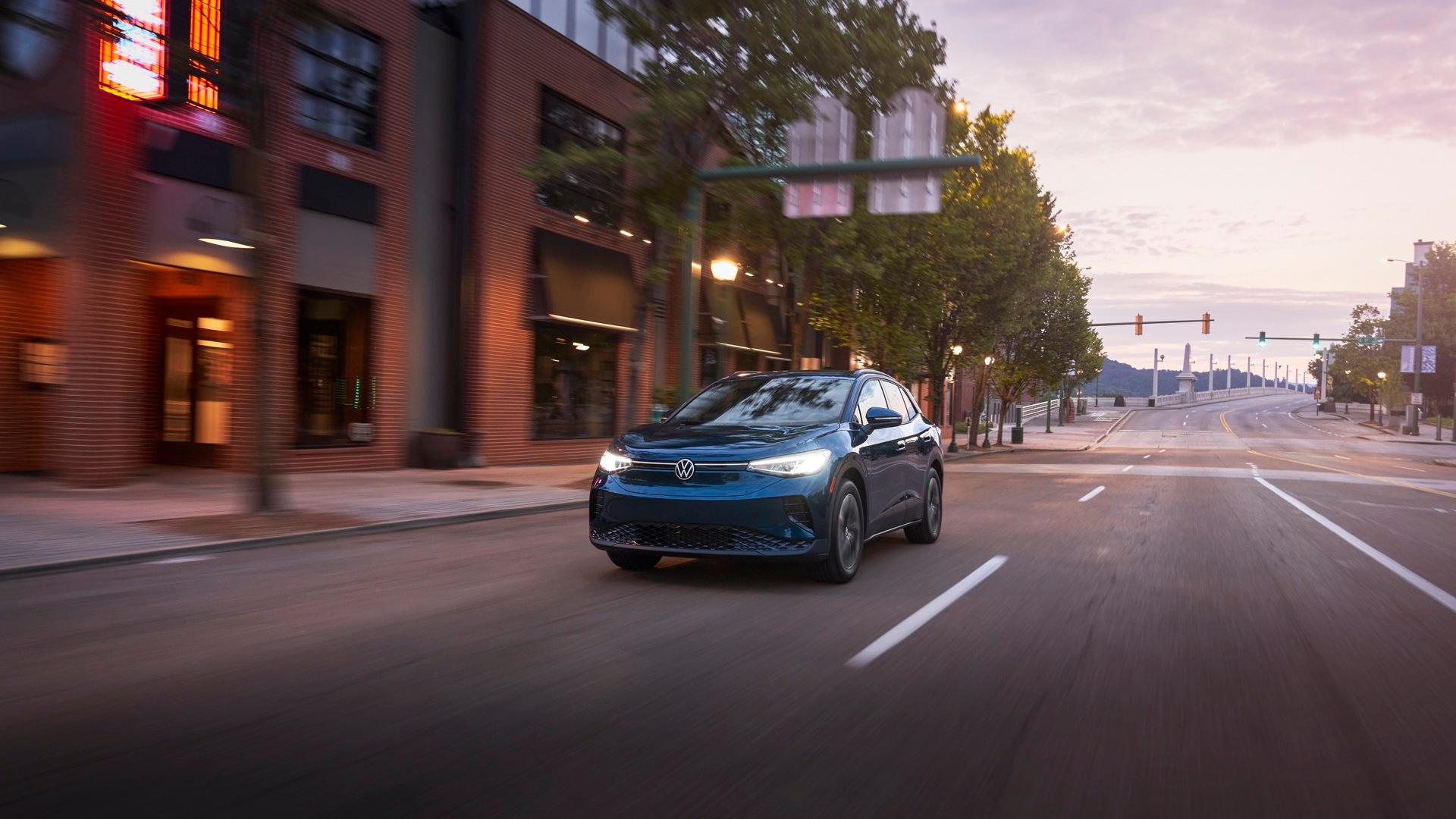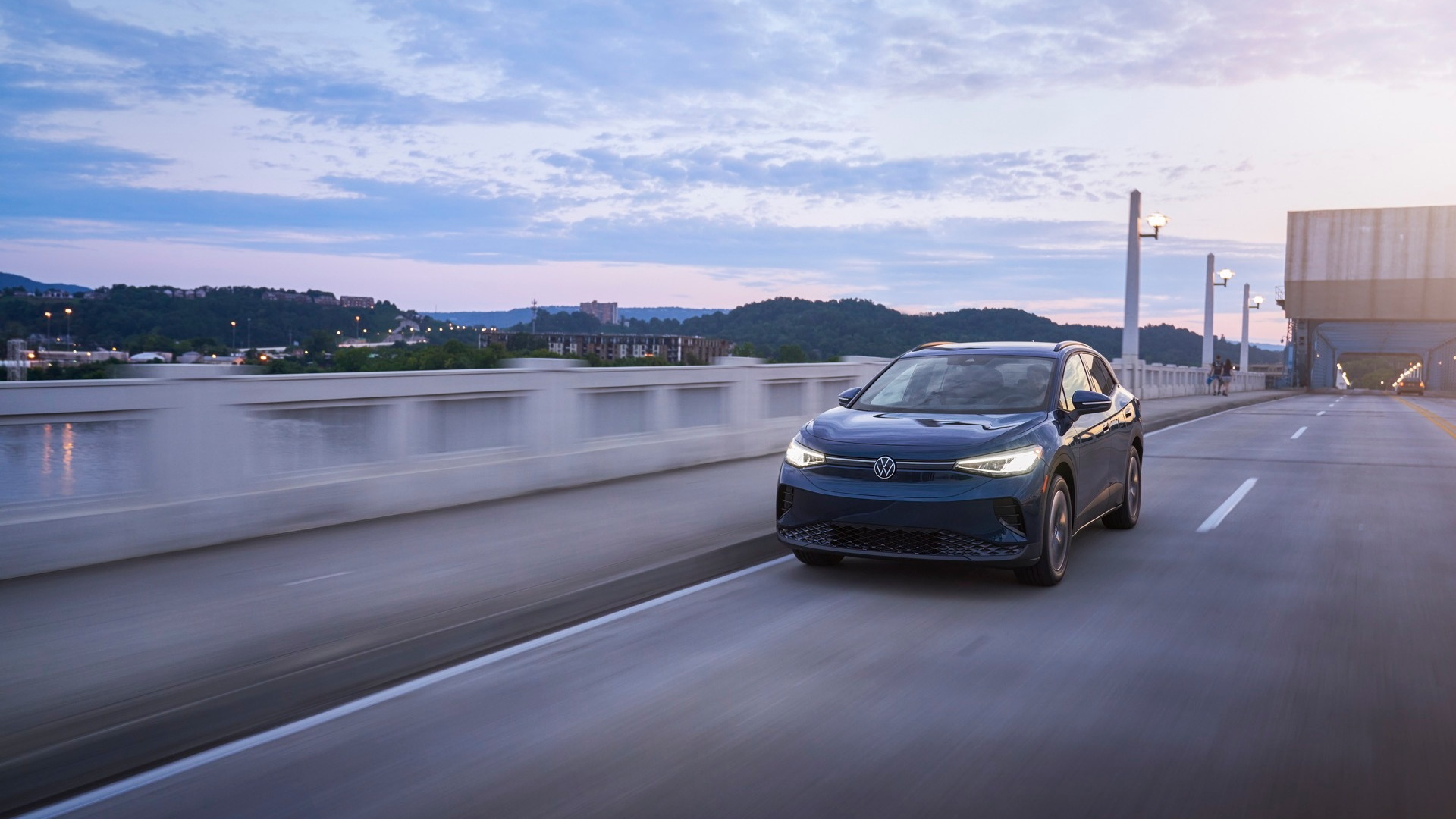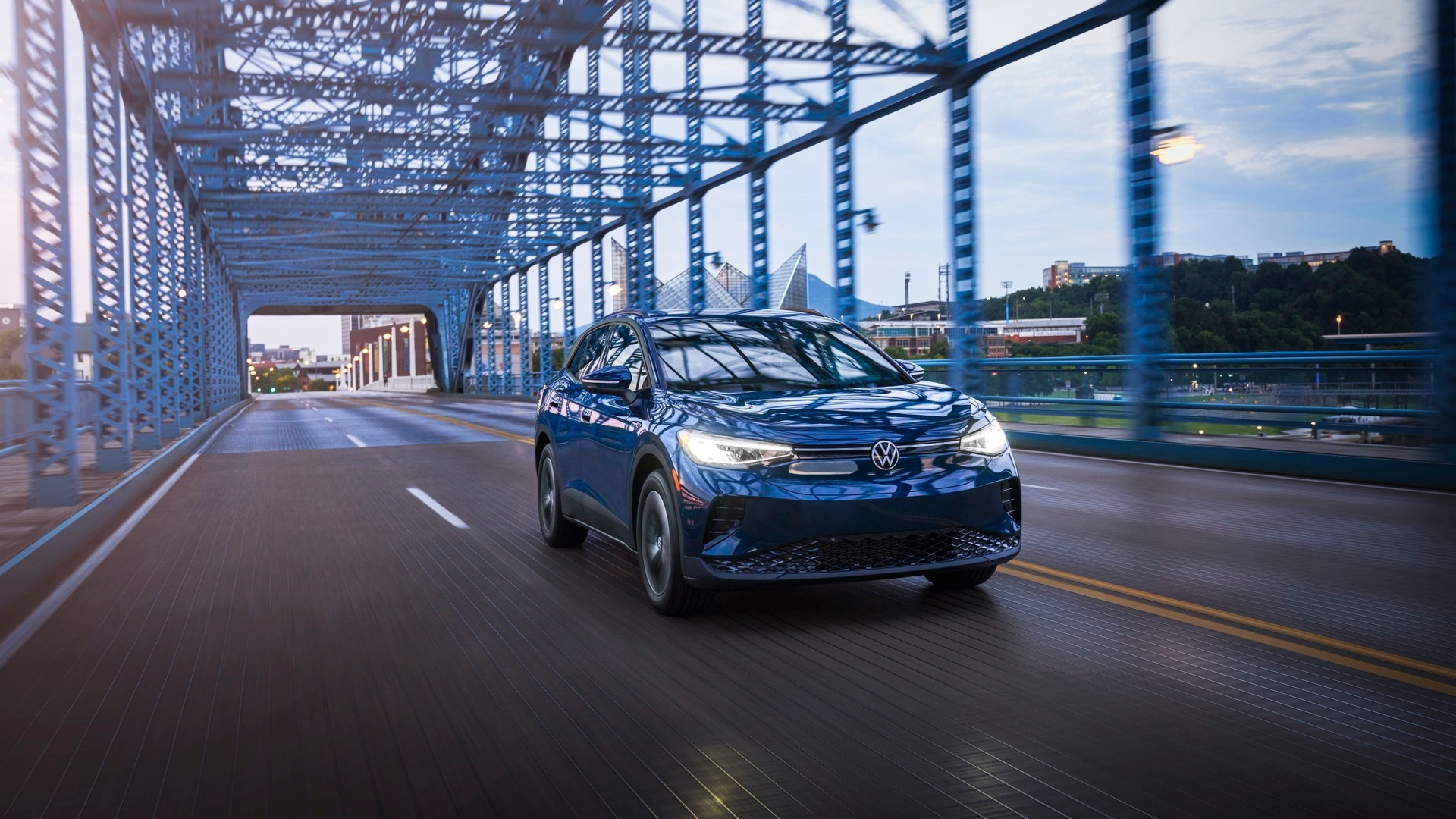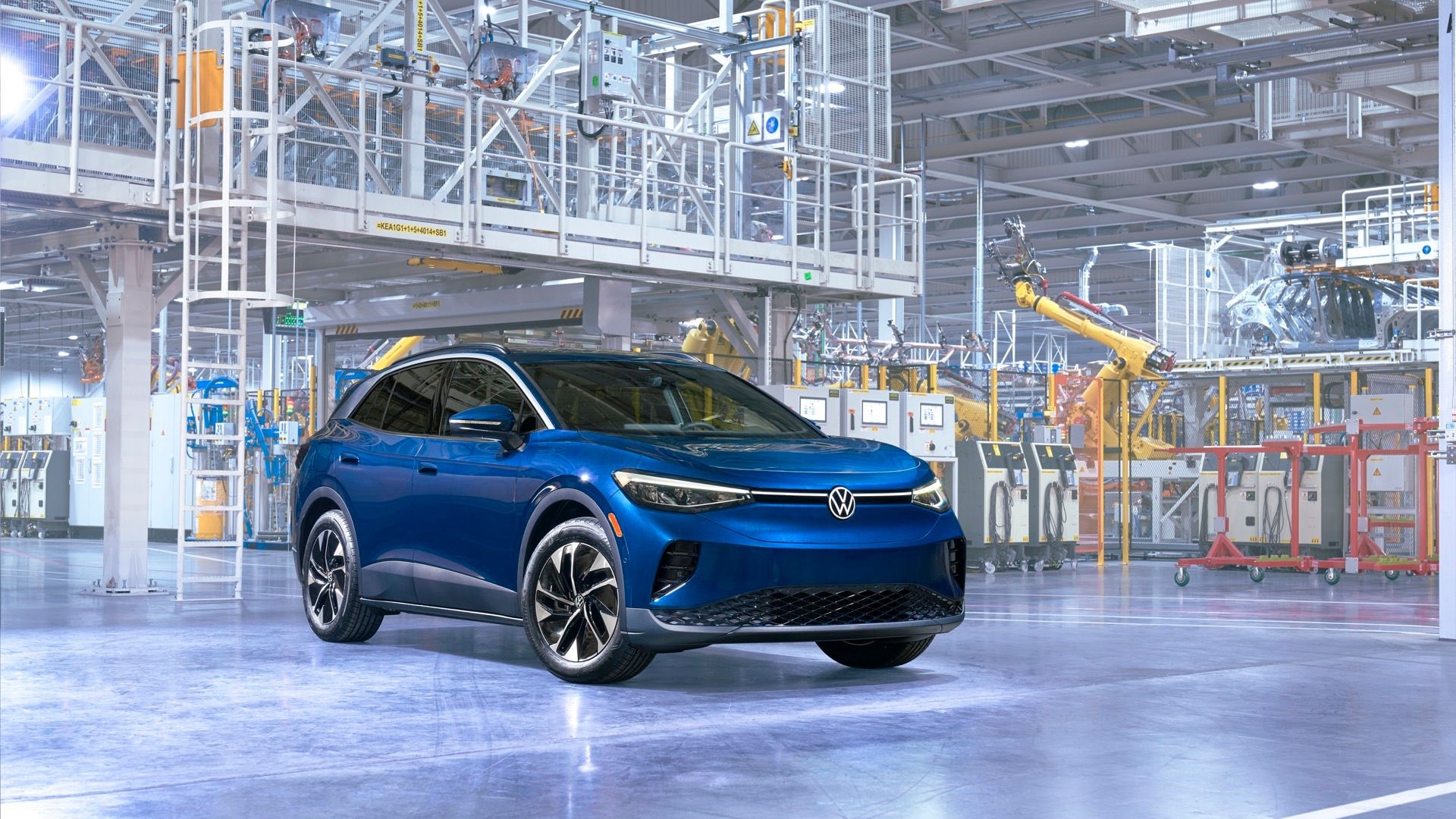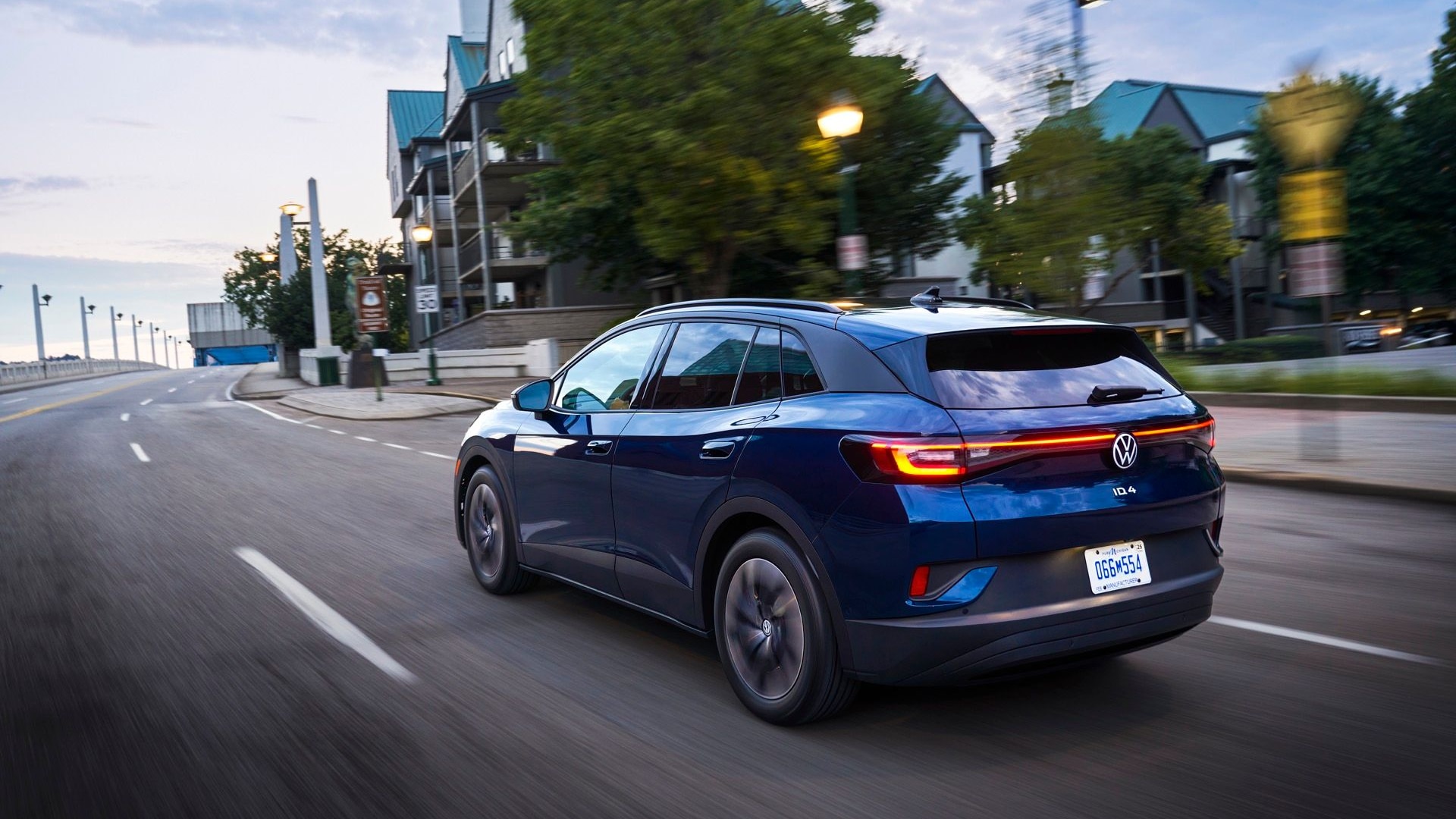Volkswagen on Tuesday confirmed that production of customer-bound ID.4 models has started at its Chattanooga, Tennessee, plant.
The occasion marks the first electric model the automaker has produced in the U.S.
Volkswagen says that 190,000 units of the ID.4 electric crossover SUV have been delivered globally, but only a small fraction of that has been to the U.S. So far, at least by sales numbers, it’s a niche model at less than 5,000 U.S. deliveries so far this year.
The Chattanooga plant is due to produce 7,000 ID.4s a month by later this year, bringing scaled-up production, and numbers that are more consistent with VW’s much-touted mission of making electric cars “for millions, not just millionaires,” and positioning it against models that sell in the hundreds of thousands annually, like the Toyota RAV4 and Honda CR-V.
VW says that Chattanooga is the sixth global site to be producing Volkswagen electric vehicles. Goalposts have hardly been happening at warp speed, however. Volkswagen broke ground on the plant expansion in 2019, and the plant started making validation builds last August.
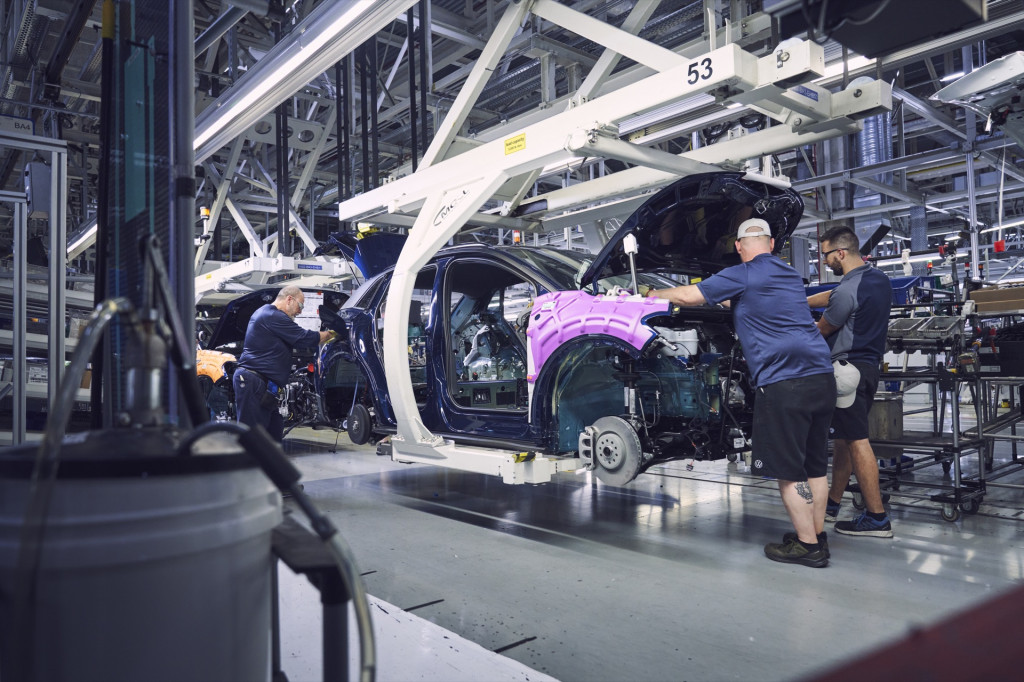
Volkswagen ID.4 built at Chattanooga
Battery cells for the ID.4 will be supplied by South Korea’s SK innovation—but from the U.S., and a mammoth Georgia plant complex that also supplies cells for the F-150 Lightning. The plant was at the center of an International Trade Commission (ITC) dispute over trade secrets with rival South Korea supplier LG that came to a head in 2021, just as the Biden administration had been pushing toward more U.S.-built EVs with a higher level of domestic content. U.S.-built ID.4 versions won’t look much if at all different than global versions, but they’ll contain all sorts of U.S. supply-chain pieces, including interior parts from Indiana and South Carolina, steel from Alabama and Ohio, and materials and components from 11 states in all.
VW says that initially the U.S.-built ID.4 will be made with rear- or all-wheel drive with the larger 82-kwh battery pack, but a rear-wheel drive version with a 62-kwh battery pack will be made there starting later in the year.
The automaker had previously suggested that the starting price would be about $36,000, but the carmaker made no further confirmation on the pricing with today’s announcement—that’s still yet to come.
